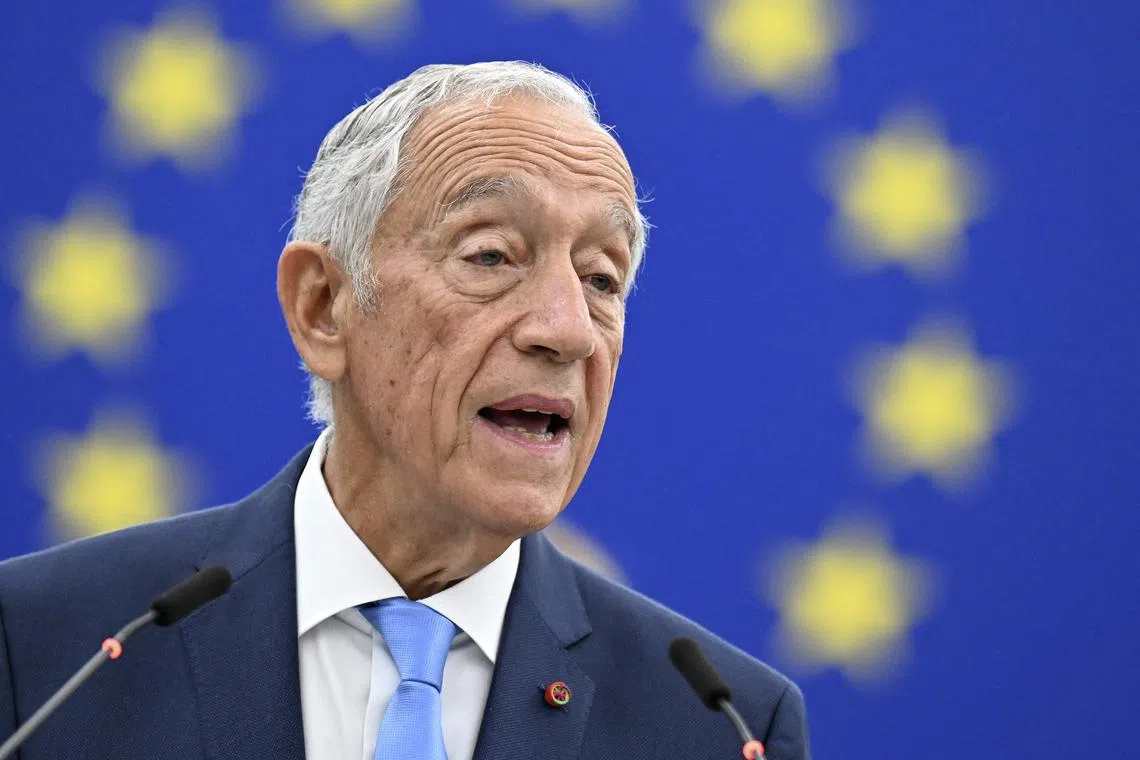Portuguese President signs law legalising euthanasia
Sign up now: Get ST's newsletters delivered to your inbox

The issue has divided the deeply Roman Catholic country and witnessed strong opposition from President Marcelo Rebelo de Sousa.
PHOTO: AFP
LISBON – Portugal’s conservative President Marcelo Rebelo de Sousa on Tuesday signed into law a Bill decriminalising euthanasia
The issue has divided the deeply Roman Catholic country and witnessed strong opposition from Mr de Sousa, a devout churchgoer.
“The president of the republic has issued the decree... as he was obliged to do” by the Constitution, the presidency said in a statement.
The final version of the “medically assisted dying” law was adopted last Friday, with 129 votes in favour in the 230-seat Parliament, including those of the ruling Socialist Party.
“The Constitution obliges the president to enact a law which he has vetoed and which has (then) been confirmed by the Assembly of the Republic. I will sign it, of course, it is my constitutional duty,” Mr de Sousa said after the vote.
A majority of lawmakers had already voted four times in favour of decriminalising assisted dying over the past three years.
But the text faced objections from the constitutional court and the head of state, a practising Roman Catholic.
To overcome the President’s last veto, the Socialists decided to vote on the same text a second time.
The law had been redrafted several times to take into account remarks by Mr de Sousa, who has twice vetoed it, and after being rejected twice by the constitutional court, which had pointed to certain “inaccuracies”.
The final version of the law states that euthanasia is allowed only in cases where “medically assisted suicide is impossible due to a physical incapacitation of the patient”.
Following the publication of the decrees, the law could come into force next autumn, according to estimates cited by the local press.
Euthanasia and assisted suicide are currently allowed in a handful of European countries, such as the Benelux countries – Belgium, the Netherlands and Luxembourg – which were the first to allow it, and neighbouring Spain. AFP


